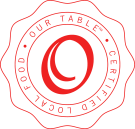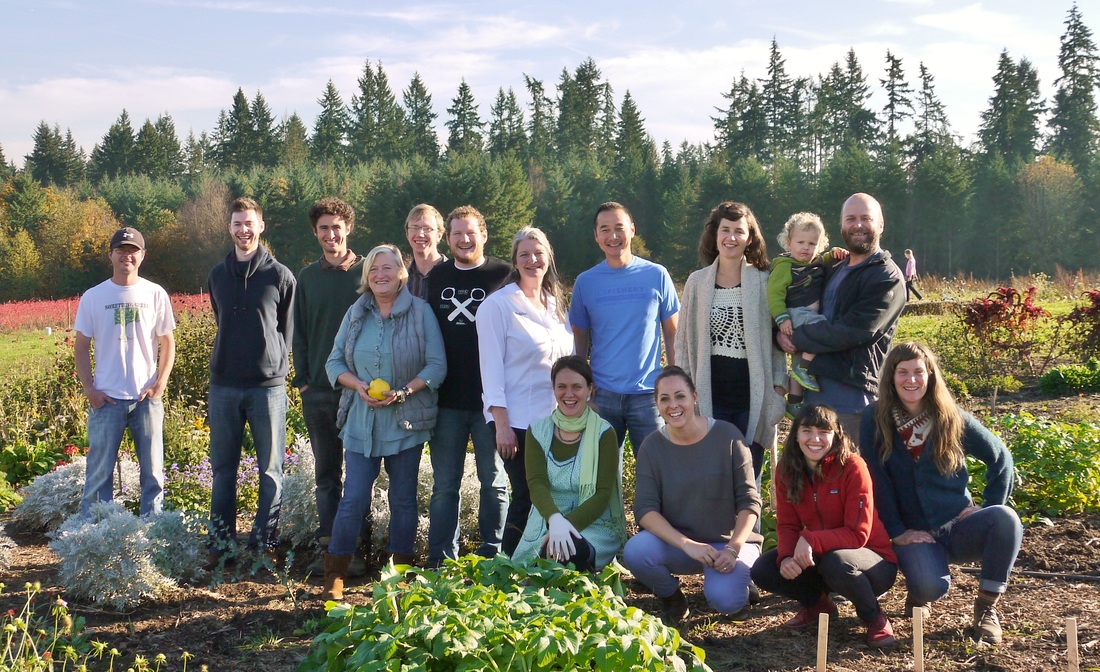Think about the last time you went grocery shopping. As you walked through the aisles you probably saw people holding a product, looking down, meticulously reading the packaging. What is everyone looking for? The product’s origins, how it was grown or processed, recognizable ingredients, the company’s ethics, or all of the above? Will they find it by reading labels in a supermarket?
In the last decade, we’ve seen a dramatic increase in the available options for “Organic”, “Natural”, “Fair-trade”, and “Local” foods. With more choice than ever before, it’s easy to find products that seemingly solve the nutritional and environmental consequences of the chemical-rich and highly processed foods that have become typical in our food system. Food companies and grocery stores have particularly responded to rising consumer awareness and education by introducing new labels, certifications, and branding that help consumers make decisions about which food to buy so they can feel good about the choices they make.
Here’s the rub, though. What many of us don’t know is that most of the natural/organic products that we find in a supermarket are owned and controlled by only a handful of corporations — the same companies that manufacture and sell the food we’re trying to avoid! Unfortunately, these labels and claims are often no more than clever marketing that capitalizes on shifts in demand, rather than useful tools to help consumers. Whether you’re searching for more nutritious, environmentally sound, or ethical food, labels and certifications on supermarket products alone won’t tell you the whole story.
That's where Our Table comes in. We’re trying to restore transparency to our food system while making it easy to buy wholesome, honest food. We do this through our Certified Local Foods sourcing standards. Anything in our store with the Certified Local seal is either grown/raised/produced on Our Table’s farm in Sherwood, or by one of the Producer Members of the Co-op. This means that the food meets our high standards of quality and ethics — prioritizing a living wages for farm-workers, building soil fertility for long-term health and nutrition, and meeting the needs of our community through delicious, local and chemical-free foods.
As the one overseeing the Producer Member relationships at Our Table, for me Certified Local is much more than just another label or certification. I get to find and build relationships with Oregon producers that are growing, raising, and producing some of the best food in the state — which also means I get to taste everything! Beyond the fun of tasting, I carefully vet potential Producer Members and their products to ensure that all of the Certified Local Foods standards are met. I look for three main things:
1) Is the product produced with sustainability and high quality in mind (Organic, non-GMO, humane)
2) Is the product and business ethical (company philosophy, practices, treatment of workers, etc.)
3) Is the product wholesome and delicious (very important!)
Through our unique cooperative structure, we currently have 13 producers that sell under the Certified Local Food brand. Each of them represents and demonstrates Our Table’s shared values of good food, good practices, and good people. They are each unique in what they do and how they do it, but every one of them is choosing the more ethical, and often difficult, small-scale, slow hand approach. Whether it’s raising animals on home grown feed (Deck Family Farm), fermenting locally sourced and Organic produce (Oregon Brineworks and Lion Heart Kombucha), or going rogue by self producing and distributing products typically sold through large commodity markets (Flying Cow Dairy, Lonesome Whistle Farm, Caravan Coffee, and Community Supported Fishery), all these Producer Members exemplify what Certified Local Foods stands for.
Because we put in the effort and diligence to thoroughly evaluate our Producer Members, we take the guesswork out of the equation for you, the eater. By purchasing Certified Local Foods, you no longer have to read the labels or wonder where your food came from, who produced it, and what’s in it. You can just eat and enjoy!
You can read more about our Producer Members here. But, really, the best thing you can do is to try their products by purchasing them at the on-farm grocery or through the Local Food Boxes CSA — because once you do, you’ll be hooked!
– Mallory


 RSS Feed
RSS Feed